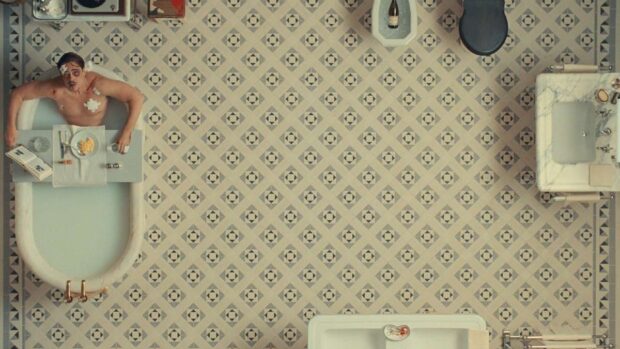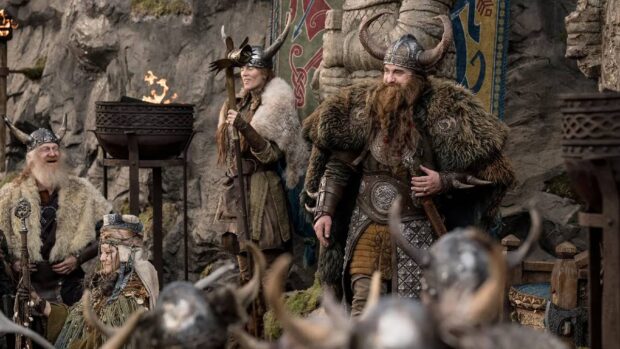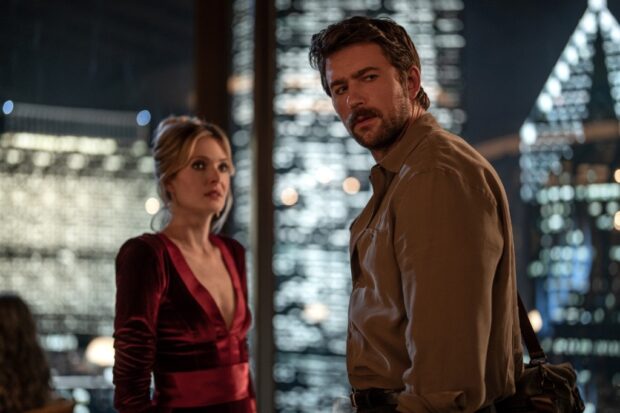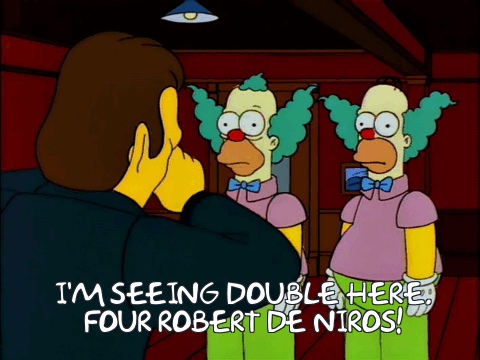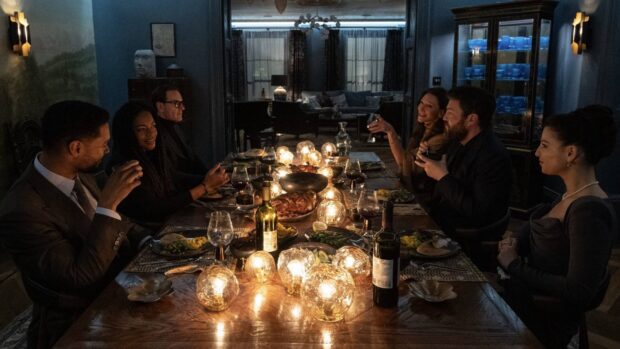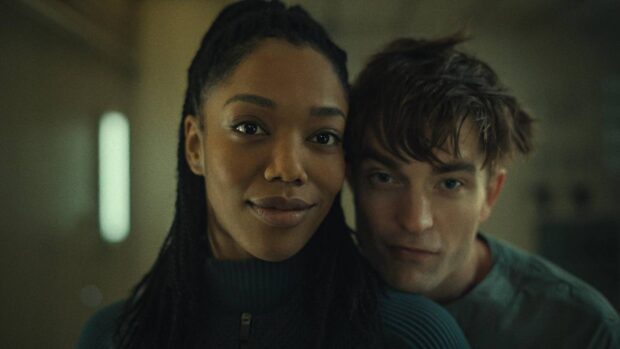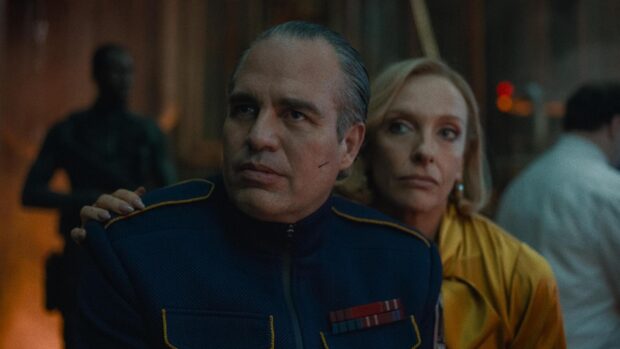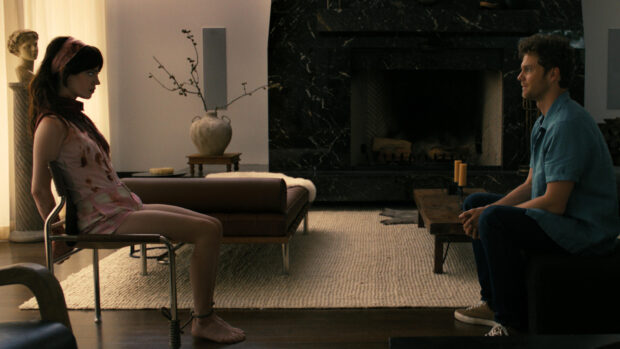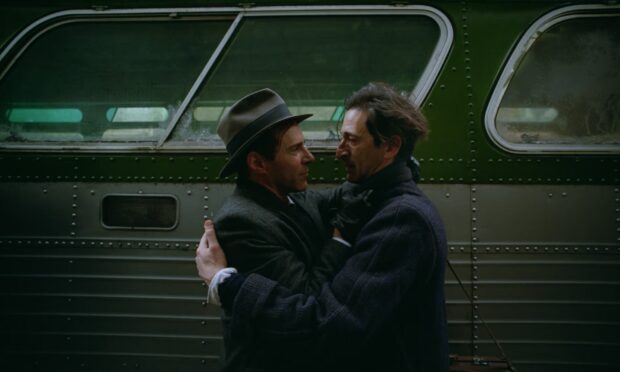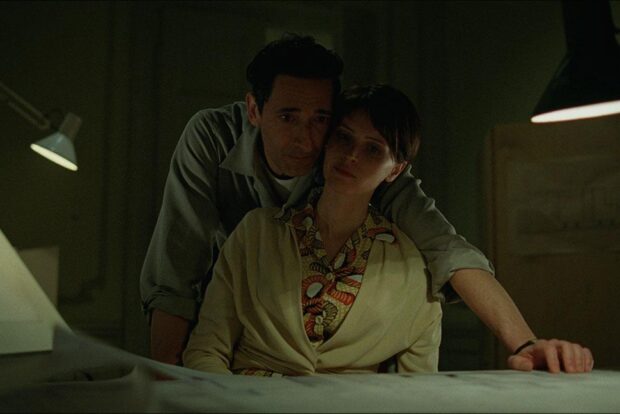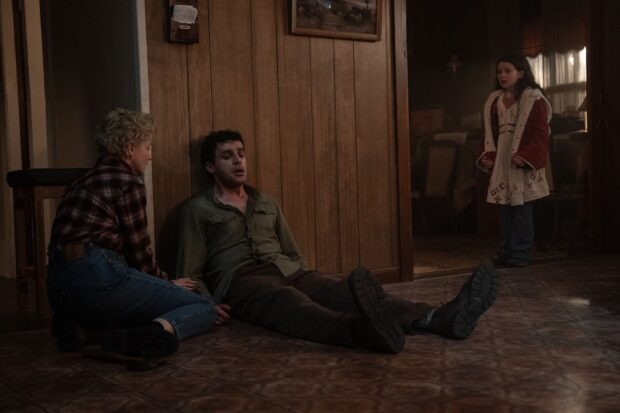Is it time to have a serious cinematic conversation about 2020? Or are we still living in it? These seem to be the central questions behind EDDINGTON, the latest from the singular mind of Ari Aster. Using the titular town as a microcosm for a nation in crisis, Aster takes broad strokes across the political spectrum, aiming his lens squarely at the fractures laid bare during the pandemic.
Set in May 2020, Aster drops us into the fictional town of Eddington, New Mexico, in the middle of the pandemic’s first global wave. What begins as a heated debate about mask mandates quickly spirals into larger clashes over individual liberties, misinformation, and conspiracy theories. At the heart of the conflict are town sheriff Joe Cross (Joaquin Phoenix) and mayor Ted Garcia (Pedro Pascal), whose longstanding animosity bubbles over when Joe impulsively announces his candidacy for the upcoming mayoral election. Personal tensions run just as high, especially given Joe’s wife Lou (Emma Stone) once dated Ted.
Aster populates Eddington with characters instantly recognisable from anyone’s social media feed. There’s Lou’s mother (Deidre O’Connell), an constant conspiracy theorist; teenager Brian (Cameron Mann), who adopts Black Lives Matter activism, possibly to impress a girl; a local cult leader (Austin Butler); incompetent deputies; viral medical misinformation; and the homeless man they all conveniently ignore.
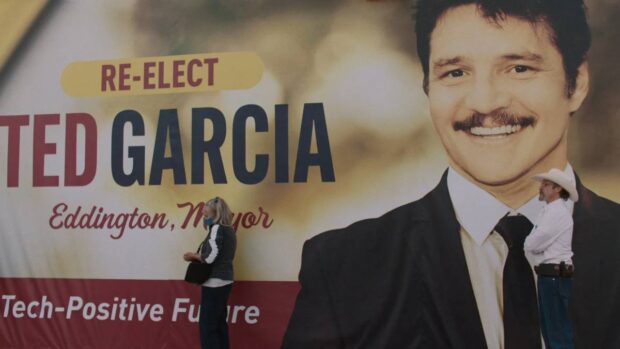
The problem isn’t that these characters aren’t worth exploring, but rather that Aster casts too wide a net, consequently offering little that feels especially new in depicting their divisions. Joe driving a police wagon plastered with misspelled slogans might be deliberately absurd, but so is watching politics unfold nightly on The Daily Show. Much of this has already been endlessly parodied and satirised elsewhere. At times, Aster’s script feels oddly centrist, taking swipes at both the left and right over issues of race, class, and the low-hanging fruit of social media outrage.
The leads, to their credit, play it all straight, rarely leaning into caricature (at least until the final act). Phoenix isn’t far removed from his recent roles, mumbling his way toward a steady breakdown. Pascal delivers a slightly more layered performance as a liberal politician whose altruism may mask ulterior motives. Stone fares less well, not for lack of effort, but because Aster’s script acknowledges her character’s trauma only to lightly mock the choices that follow.
Where Aster truly leans in is during the film’s violent final act: a spiralling series of crimes gone wrong, more Coen Brothers via Beau Is Afraid than Midsommar. It’s a showdown that feels both inevitable and oddly familiar, given the film’s neo-Western leanings. Yet perhaps that’s Aster’s point. In cutting so close to the bone, EDDINGTON may not ultimately be satire, but rather a bleak black mirror, one in which we’re all very much reflected.

2025 | USA | DIRECTOR: Ari Aster | WRITERS: Ari Aster | CAST: Joaquin Phoenix, Pedro Pascal, Luke Grimes, Deirdre O’Connell, Micheal Ward, Austin Butler, Emma Stone | DISTRIBUTOR: Sydney Film Festival 2025, A24 (USA), Universal Pictures (Australia) | RUNNING TIME: 145 minutes | RELEASE DATE: 4-15 June 2025 (SFF 2025), 18 July 2025 (USA), 21 August 2025 (Australia)


